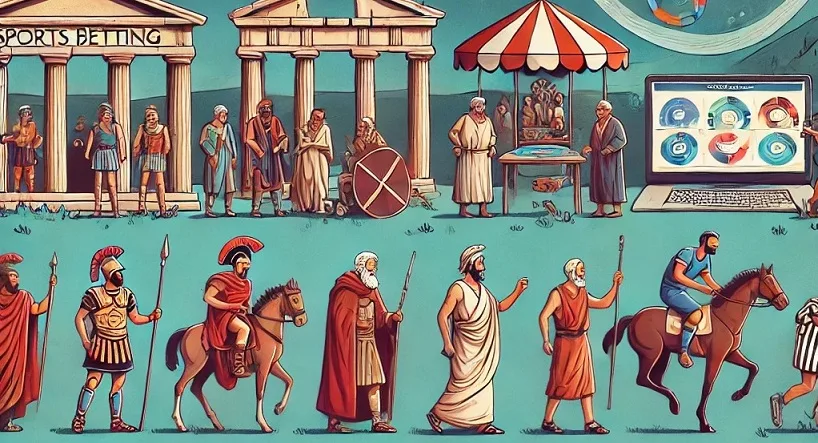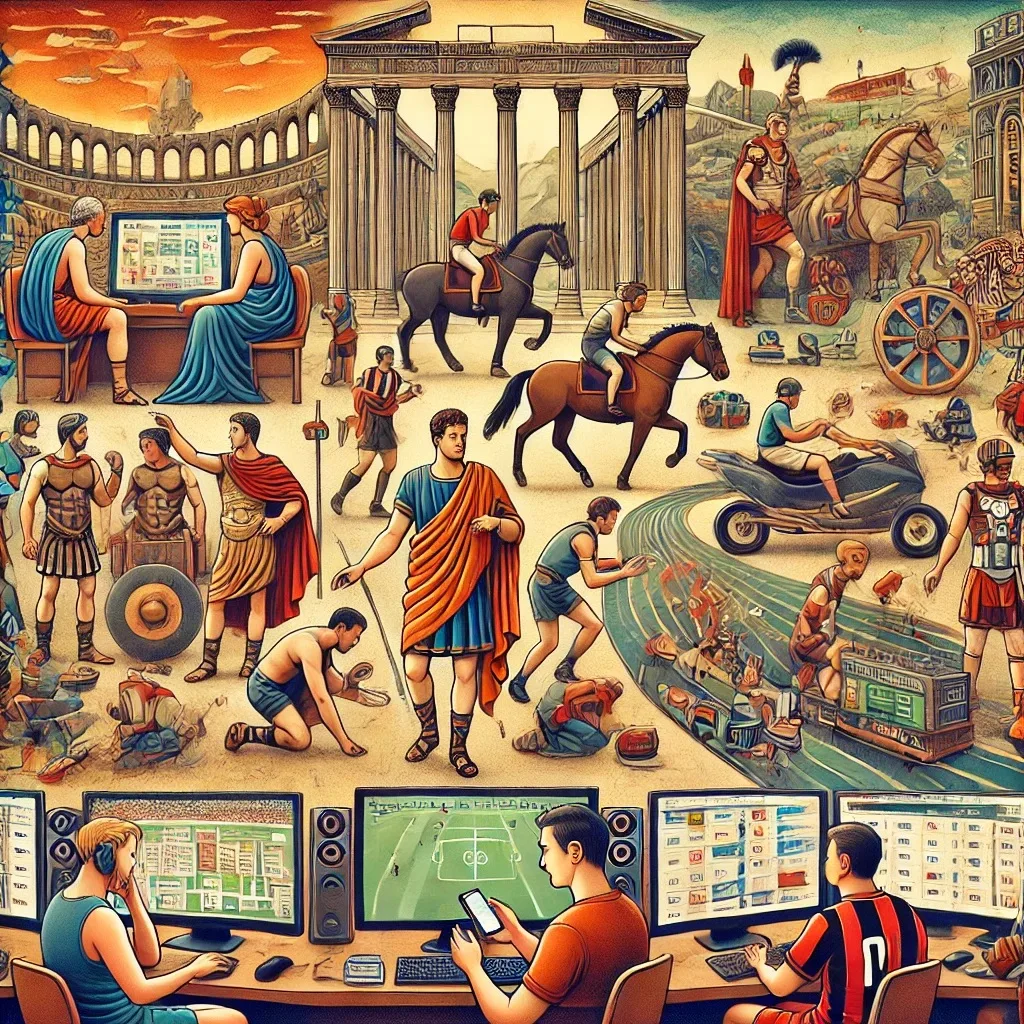Evolution of Sports Betting: From Ancient Times to the Digital Era

The journey of sports betting is as old as sports themselves, tracing back to ancient civilizations. From the coliseums of ancient Rome to today’s online platforms, the evolution of betting reflects broader societal shifts, technological advancements, and regulatory developments. This article explores the rich history of sports betting and how it has transformed through the ages to become the digital giant it is today.
The Beginnings of Sports Betting in Ancient Civilizations
Sports betting can be traced back thousands of years to some of the world’s earliest civilizations. The Greeks, known for their dedication to athletic competitions, initiated the trend with bets placed on Olympic Games events. Following them, the Romans adopted betting on gladiator battles and chariot races, embedding betting into their culture.
Sports Betting in the Greek and Roman Empires
In ancient Greece, sports betting was primarily associated with the Olympic Games, which gathered large audiences eager to wager on their favourite athletes. Betting was seen as both a form of support and entertainment, a tradition that expanded significantly under the Roman Empire. In Rome, betting on gladiatorial fights and chariot races was commonplace, becoming a staple of Roman entertainment. The Romans even established the first-known betting odds, a practice that would set the foundation for modern betting systems.
The Middle Ages to the Renaissance: A Shift in Betting Trends
During the Middle Ages, the spread of Christianity and moral laws led to restrictions on gambling across Europe. However, betting continued underground and eventually resurfaced with horse racing in the Renaissance period. Horse racing became the most popular sport for betting, a tradition that solidified its importance in British society and spread globally.
Horse racing, dubbed the “sport of kings,” became synonymous with betting during the Renaissance. The nobility would wager on races, often setting high stakes. Betting on horse racing became organized with the establishment of formal racetracks and regulations, leading to the introduction of betting rules and bookkeepers to ensure fair practices. This era marked a significant shift towards regulated betting practices, setting the stage for modern sportsbooks.

The Digital Era: Transforming Sports Betting for a Global Audience
In the late 20th century, the advent of the internet revolutionized sports betting. The first online sportsbooks appeared in the 1990s, allowing bettors to place wagers from the comfort of their homes. This innovation transformed the industry, offering betting on a wider variety of sports and events globally. Today, digital platforms and mobile apps provide an accessible, user-friendly experience, with live betting and real-time odds adjustments.
Mobile Betting and the Future of Sports Betting
The current digital era has ushered in mobile betting, which has become increasingly popular. Betting apps allow users to place bets anytime, anywhere, with in-play betting and streaming options providing an immersive experience. Looking forward, technological advancements such as artificial intelligence, data analytics, and blockchain are expected to enhance user experience, bringing unprecedented levels of customization and security to sports betting.
